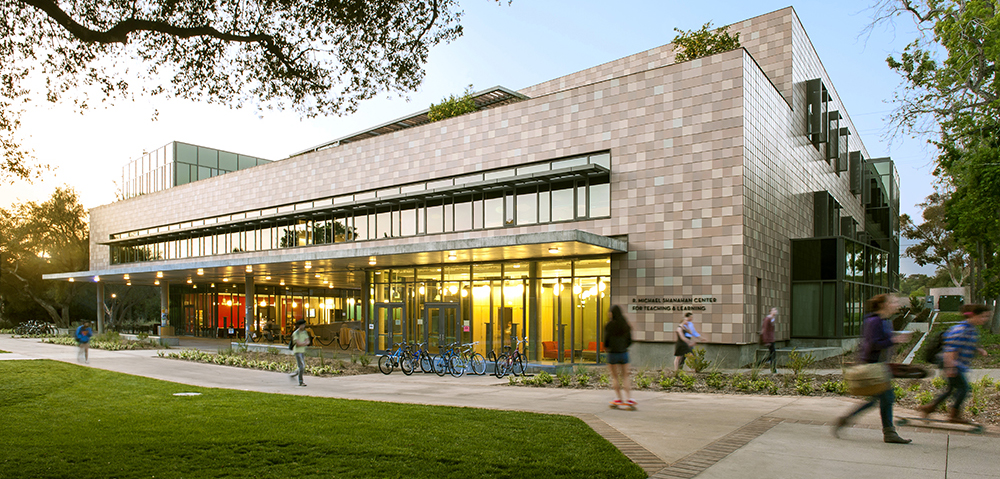California is home to some of the world’s most prestigious and well-known universities. But for those seeking a more intimate and personalized college experience, small colleges in California can be a great option.
These institutions offer smaller class sizes, more individual attention from professors, and a tight-knit community of students. If you’re considering a small college in California for your undergraduate education, look no further!
In this article, we’ve compiled a list of the 15 best small colleges in California for 2023. So whether you’re interested in liberal arts, sciences, or professional fields, there’s sure to be a school on this list that’s a perfect fit for you. So why wait? Apply now to start your journey at one of these outstanding institutions.

Table of contents
- What makes the small colleges in California stand out from other colleges in California?
- What are the admission requirements for these small colleges in California?
- How can I determine which small college is the best fit for me?
- How much does it cost to attend these small colleges in California?
- What types of financial aid are available at these small colleges in California?
- 15 best small California colleges
- #1. Harvey Mudd College
- #2. Claremont McKenna College
- #3. Pomona College
- #4. Scripps College
- #5. California Institute of Technology
- #6. Occidental College
- #7. Harvey Mudd College
- #8. Mills College
- #9. Pitzer College
- #10. Santa Clara University
- #11. University of San Francisco
- #12. Whittier College
- #13. University of Redlands
- #14. Dominican University of California
- #15. Chapman University
- Frequently Asked Questions
- Conclusion
- References
- Recommendations
What makes the small colleges in California stand out from other colleges in California?
Small colleges in California stand out from other colleges in the state because they typically offer a more intimate and personalized learning environment. With smaller class sizes, students have more opportunities to interact with their professors and receive individualized attention and support.
Small colleges in California also often have a strong sense of community, with tight student bodies and a range of extracurricular activities that foster social connections and personal growth. Additionally, many small colleges in California emphasize undergraduate research and offer unique opportunities for students to engage in hands-on learning and professional development.
Overall, the combination of individual attention, community, and experiential learning makes small colleges in California a compelling option for many students.
See this related article: 10 Most Conservative Christian Colleges in the World 2023
What are the admission requirements for these small colleges in California?
The admission requirements for small colleges in California can vary depending on the specific institution. However, generally speaking, the conditions typically include the following:
- High school transcript: Applicants must submit their high school transcript to demonstrate their academic performance and achievement.
- Standardized test scores: Some colleges require SAT or ACT scores, while others have adopted test-optional policies that do not require test scores.
- Letters of recommendation: Many colleges will ask for letters of recommendation from teachers, counselors, or other mentors who can speak to the applicant’s character and academic abilities.
- Personal statement or essay: Most colleges will ask for a personal statement or essay in which applicants can share their goals, interests, and experiences.
- Extracurricular activities: Colleges often want evidence of the applicant’s involvement in extracurricular activities, such as sports, clubs, community service, or work experience.
It’s important to check each college’s specific admission requirements and deadlines to ensure you provide all the necessary materials on time. Additionally, depending on the program or significance, some colleges may require additional materials, such as an interview or portfolio.
You should read: 15 Best Colleges For Students With Learning Disabilities In 2023
How can I determine which small college is the best fit for me?
Choosing the right college can be a daunting task, but there are several steps you can take to determine which small college is the best fit for you. Here are some tips to consider:
Research the colleges
Start by researching the colleges on your list. Look at their websites, read about their programs, and learn about their student life and culture. Consider what you want in a college: a solid academic program, a particular location, or a vibrant extracurricular scene.
Visit the campus
Visit the campus to get a sense of the environment and community. Attend an information session, tour, and talk to current students and faculty to learn more about the college.
We think you should check out: Top 10 Community Colleges In Bay Area | 2023 Ranking
Consider your goals and interests.
Think about your academic and career goals, as well as your interests and hobbies. Consider whether the college offers programs and activities that align with your passions and dreams.
Evaluate the college’s resources.
Look at the resources available to students, such as academic support services, career services, and internship opportunities. Consider whether the college can help you achieve your goals and set you up for success after graduation.
Read also: 13 Best Catholic Colleges In The World.
Trust your gut
Trust your instincts and choose the college that feels best for you. Consider factors such as the campus culture, student body, and location, and choose the college where you feel most comfortable and excited to learn and grow.
See this related article: 10 Best Colleges For Orthodontists In 2023
How much does it cost to attend these small colleges in California?
The cost of attending small colleges in California can vary widely depending on the specific college and individual circumstances. However, in general, the cost of attending a small college in California can be comparable to or even lower than that of attending a more prominent university in the state.
Tuition and fees for small private colleges in California can range from around $30,000 to $60,000 per year, while tuition and fees for small public colleges can range from about $5,000 to $15,000 per year for in-state students. Additionally, students will need to budget for other expenses, such as housing, food, textbooks, and personal expenses.
However, many small colleges in California offer generous financial aid packages to help students afford the cost of attendance, including scholarships, grants, and work-study opportunities. Students should research the financial aid options available at each college they are considering and complete the FAFSA (Free Application for Federal Student Aid) to determine their eligibility for federal and state financial aid.
You should read 17 Cheapest Colleges in Dublin for International Students.
What types of financial aid are available at these small colleges in California?
Small colleges in California typically offer a range of financial aid options to help students afford the cost of attendance. Here are some of the types of financial aid that may be available:
Scholarships
Many small colleges offer scholarships based on academic merit, talent, or other criteria. These scholarships help cover the cost of tuition, fees, and other expenses.
Grants
Grants are typically awarded based on financial need and do not need to be repaid. They can come from federal, state, or institutional sources.
See this related article: Full List of Best SPP Colleges in Canada | 2023
Work-study
Work-study programs allow students to earn money by working part-time jobs on campus. These programs can provide valuable work experience and help offset the cost of attendance.
Loans
While you must repay loans, they can be a practical option for students who need additional funding to cover their educational expenses. Federal student loans typically offer lower interest rates and more flexible repayment options than private loans.
Students should research the financial aid options available at each college they are considering and complete the FAFSA (Free Application for Federal Student Aid) to determine their eligibility for federal and state financial aid. Additionally, some small colleges in California may have their application process for institutional support, so it’s essential to check each college’s specific requirements and deadlines.
It would be best if you read: Cheapest MBBS Universities And Colleges In The World 2023 [UPDATED]
15 best small California colleges
#1. Harvey Mudd College

This private college is consistently ranked among the top undergraduate engineering schools in the country and offers math, science, and engineering programs.
#2. Claremont McKenna College
Another member of the Claremont Colleges consortium, this private liberal arts college is known for its vital programs in economics, government, and international relations.
You should read 17 Best Computer Engineering Colleges, Tuition, Acceptance rate.
#3. Pomona College
One of the top liberal arts colleges in the country, Pomona offers a wide range of majors across disciplines, focusing on interdisciplinary study and research.
#4. Scripps College
Also part of the Claremont Colleges, Scripps is a women’s college that offers a rigorous liberal arts education focusing on leadership, community engagement, and social justice.
See this related article: 20 Colleges With Gymnastics Team In 2023
#5. California Institute of Technology

This private research university in Pasadena is known for its world-class science and engineering programs and its close collaboration with NASA’s Jet Propulsion Laboratory.
#6. Occidental College
Located in Los Angeles, Occidental offers a well-rounded liberal arts education with solid humanities, social sciences, and natural sciences programs.
We think you should check out: 15 Cheapest Colleges In California For Non-Residents In 2023
#7. Harvey Mudd College
This private college is consistently ranked among the top undergraduate engineering schools in the country and offers math, science, and engineering programs.
#8. Mills College
This women’s college in Oakland offers various majors across disciplines, focusing on social justice and community engagement.
You should check out: Best Colleges that Offer Free Tuition for Low-Income Families.
#9. Pitzer College

Another member of the Claremont Colleges, Pitzer, offers a unique program that combines rigorous academics with a commitment to social responsibility and environmental sustainability.
#10. Santa Clara University
This Jesuit university in the heart of Silicon Valley offers vital programs in business, engineering, and the liberal arts, as well as a commitment to social justice and community engagement.
See this related article: 7 Best Pharmacy Schools & Colleges in Michigan in 2023
#11. University of San Francisco
Another Jesuit university, USF, is known for its vital programs in business, nursing, and the liberal arts and its commitment to social justice and diversity.
#12. Whittier College

This private liberal arts college in Whittier offers a well-rounded education with solid humanities, social sciences, and natural sciences programs.
You should read: 13 Best Colleges For Golf Scholarships In 2023
#13. University of Redlands
This private university in Redlands offers various majors across disciplines, focusing on experiential learning, community engagement, and sustainability.
#14. Dominican University of California
Located in San Rafael, Dominican offers a diverse range of majors across disciplines, focusing on sustainability, social justice, and community engagement.
We think you should check out: 10 Best Colleges for C Average Students in the USA | 2023
#15. Chapman University
This private university in Orange offers vital programs in film, business, and the liberal arts and a commitment to community engagement and experiential learning.
See this related article: 10 Best Marine Biology Colleges In California, 2023 | Cost, Requirements
Frequently Asked Questions
Typically, a small college in California has fewer than 5,000 undergraduate students.
Yes, many small colleges in California offer diverse majors and programs, from liberal arts to STEM fields and professional programs.
Not necessarily. While some small colleges may have higher tuition rates, many offer generous financial aid packages that can make them more affordable than more prominent universities.
Not at all. Many small colleges in California have a strong reputation for academic excellence and can offer unique undergraduate research and experiential learning opportunities.
Absolutely. Many small colleges in California have vital pre-professional programs and offer excellent preparation for graduate and professional schools. Additionally, the close-knit community and personalized attention from professors can be a great asset in pursuing advanced degrees.
Conclusion
California’s small colleges offer a unique and enriching college experience that takes work to find elsewhere. Whether you’re looking for a close-knit community, personalized attention from professors, or a strong emphasis on undergraduate research, the 15 colleges on this list have covered you.
So don’t hesitate to apply now and take the first step towards a fulfilling college experience tailored to your needs and goals. We hope this list has helped you in your college search, and we wish you the best of luck as you embark on this exciting new chapter of your life!
You should read: 15 Most Selective Colleges in the United States | 2023
References
- https://www.niche.com/colleges/search/best-small-colleges/s/california/
- https://www.greatcollegedeals.net/rankings/small-colleges-california/
- https://www.greatvaluecolleges.net/california/cheapest-small-colleges/
Recommendations
- 13 Best Catholic Colleges In The World
- 10 Best Colleges For Orthodontists In 2023
- 17 Cheapest Colleges in Dublin for International Students
- Complete List of Best SPP Colleges in Canada | 2023
- Cheapest MBBS Universities And Colleges In The World 2023 [UPDATED]
- 17 Best Computer Engineering Colleges, Tuition, Acceptance rate

